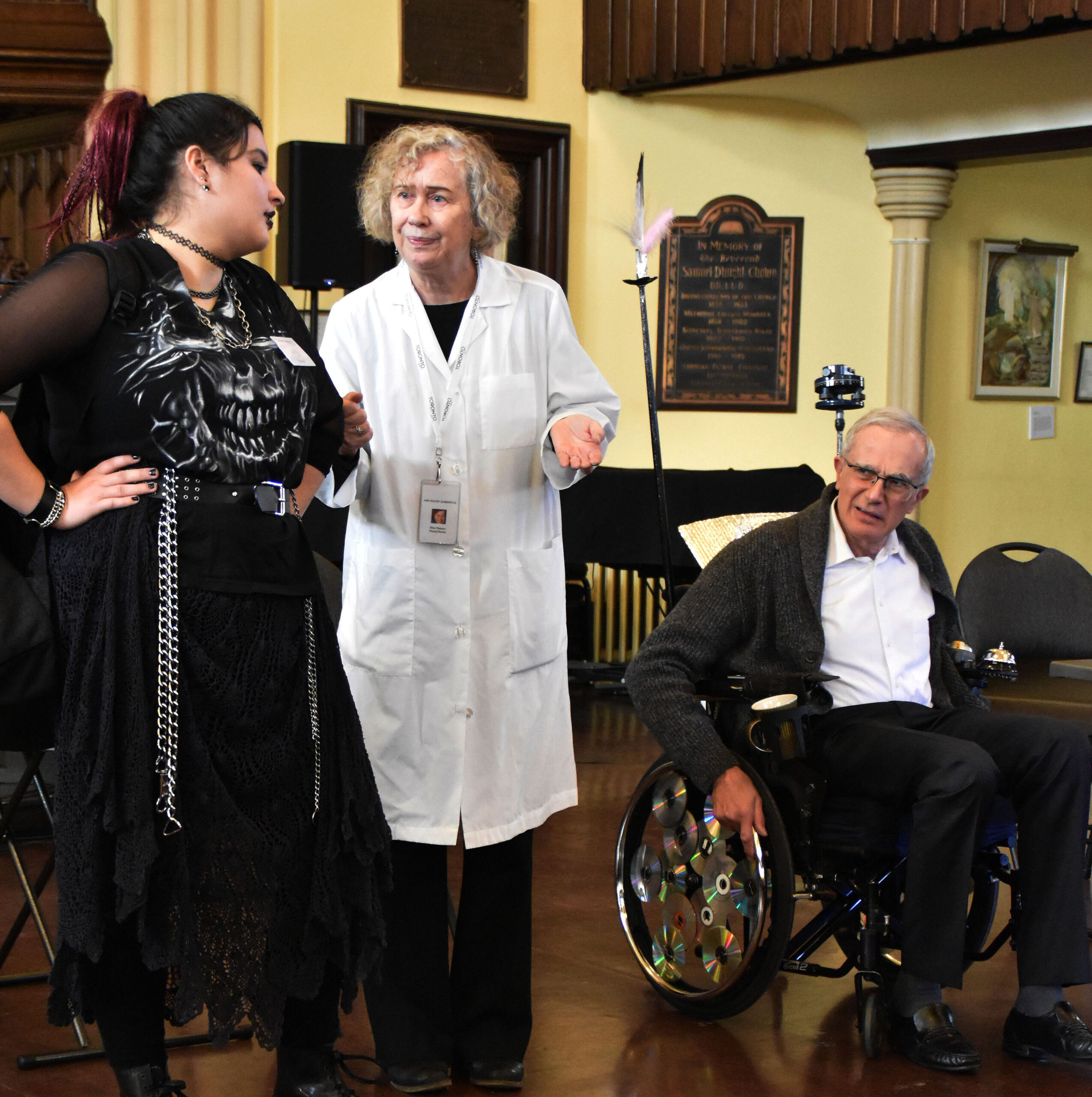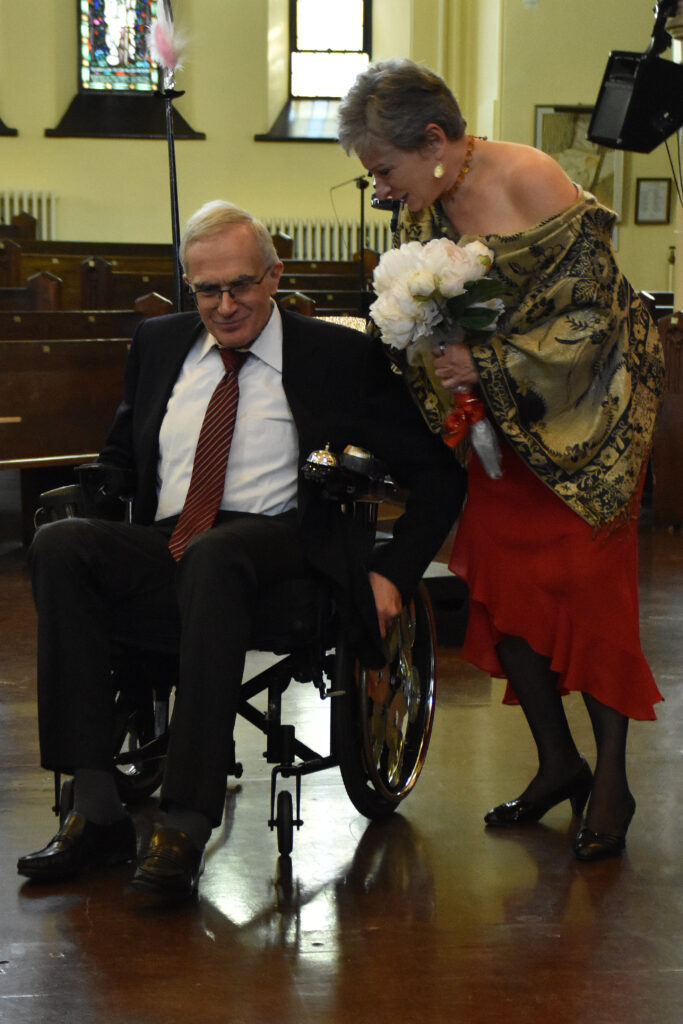‘Talking Matters’ and so does Listening: A Moving Discussion of Dementia

Lizzy is a first-time volunteer at a long-term care home. Bea, the overworked nurse in charge, doesn’t hold much regard for the new technique that Lizzy wants to explore: talking to the residents with dementia, and, more specifically, asking questions to help them find their way back to themselves.
Talking Matters by Marina Engelking and Merrill Swain is a tender and informative exploration of dementia that urges viewers to think carefully about how to support our aging loved ones. Directed by Barbara Hyland and produced by Don Baker with stage management by Linda Gray, Talking Matters was performed at the Spire on Sunday, November 5th. The production is part of Moving Scenes, a collection of research-based shows offered by act2studioWORKS, a Toronto-based touring theatre group composed of members 50+ with a focus on seniors’ health and aging.
Lizzy (Grace Faria) meets David (Rob Scavone), a wisecracker in a souped-up wheelchair, and Inga (Jan Boase), a former dancer with an air of sadness. Despite Lizzy’s black lipstick, black clothing, and—gasp!—tattoos, she has a knack for connecting with David, who hasn’t had a visitor in years. Lizzy brings language games and activities to her visits with David, who opens up and shows his creative and intellectual side. Meanwhile, in a somewhat comical but mostly infuriating example of what not to do, we watch Bea (Carol McLennan) try to connect with Inga without letting her get a word in edgewise.
Faria and Scavone have a natural dynamic that’s fun to watch, and the bond that Lizzy and David form is playful and heartwarming. As something of a vampirish youth myself, I found the banter about Lizzy’s style of dress— “Dracula, where the hell is my tea?!”—funny and familiar. Boase’s portrayal of Inga is striking and expressive, conveying intense emotions with her eyes. McLennan handles the complexity of a frazzled but well-meaning character, showing Bea’s growth as she learns to better understand the residents she’s neglected.
Conversations with people who have dementia can be nonlinear and contain surprising revelations—moments where new information changes how we understand old stories. From a playwright’s perspective, this roundabout way of communicating is useful for building suspense, and Engelking and Swain take advantage of this in the script. The writing is laced with poetry, paying beautiful attention to language and how our minds access words, phrases, and memories. Lines like “I felt a funeral in my brain” show the weird and lovely ways that the human mind can find to communicate when the usual words fail.
After the performance at the Spire, Vicki Poffley and Jan White of the Alzheimer Society of KFL&A led a discussion with the audience, who were invited to share their insights and experiences. Speaking with Swain afterward, I learned that the play’s incisive understanding of dementia is no coincidence—Talking Matters was written after extensive research in a long-term care facility.

What struck me most about Talking Matters is the simplicity of the gesture that changes the characters’ outcomes. Lizzy’s willingness to listen—her ability to be present and attentive with the residents—is all it takes to break the isolation. I was also struck by how few young people I saw in the audience. Whether through grandparents, parents, friends, neighbours, or, if we live long enough, ourselves, we are all likely to encounter dementia someday. We need to learn how to talk and listen so that we can support each other. When I’m old and my mind begins to wander away, I hope that the people around me will stay curious—and I hope that they’ll keep me talking.
To learn about Moving Scenes by act2studioWORKS, visit their website. For more information about dementia and local resources, visit the Alzheimer Society of Kingston, Frontenac, Lennox & Addington Counties.
This article was edited on December 1st, 2023 to update formatting.